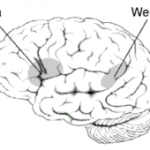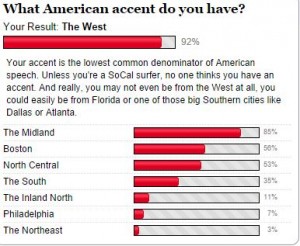Archives
now browsing by author
Interesting Links
Here are just a few links I’d thought were relevant to language and linguistics.
Foreign Languages
-This are two that i used to help me study Japanese
http://www.easyjapanese.org/index.html
http://www.freejapaneselessons.com/
– I used this one to help myself learn a few words in Italian
http://www.oneworlditaliano.com/english/italian/italian-course-free-online.htm
Pidgins and Creole
-Because the topic of Pidgin and Creole languages where so interesting to me, here is a few links relating to it.
http://www.eyeofhawaii.com/Pidgin/pidgin.htm
http://aboutworldlanguages.com/creole-languages
Accents and Dialects
-Something i also found interesting about languages is how slowly over time, people start talking differently . even though it is the same accent, they develop differences. Accents and dialects show were you come from.
http://www.dialectsarchive.com/united-states-of-america
http://aschmann.net/AmEng/
Other Useful Links
-Here are just a few links that are related to linguistics that i found relevant.
http://en.wikipedia.org/wiki/Neurolinguistics
http://en.wikipedia.org/wiki/Origin_of_language
-This one covers just about everything i have learned in the class so far. its a good review for things forgotten about.
http://ielanguages.com/linguist.html
Hw 4
Carl Spencr, Katrina Chavez, Paige Bowden, Michelle Kuerz
Language is ever changing, it is constantly evolving and taking new forms. The world is filled with thousands of languages, each one unique to its’ own culture, having different rules and social norms. Language and culture go hand in hand. If you are a native speaker of a language you will automatically have a mental grammar and cultural competence. If you are a speaker of Pidgin, then you will take the very basics of a language and build from there. Language can be broken down and changed, and it also holds cultural context. Language, not only is expressed in words, but in numerous things such as culture, body language and history. It is in a state of constant change, molding and shaping generations through generations, from odd and mixed beginnings to the way we need to use it today. Its been around for thousands of years and there is no such thing as a ‘standard language.’ Language changes slowly. Almost unnoticeable. By the time people do notice it, it is already to late. Language is one of the main things that defines us. It was makes us so special and unique. It is what makes us who we are.
P.445 #16
a.Non native b. Natural c. Non d. Some e. Some f. Natural g.Natural/Some h. Some I. Natural
J. Natural k.Natural l.Non m. Some n. Some o. Some
P.446 #17
a. A b. A c. E d. other, Cola e. A f. B g.A h. C I. None
Pg. 444 #14
P, S, Ph, Sm, M, Ph
Pg. 445 # 16
-Non- native
-Natural
-Some
-Natural
-Some
-Non- Native
-Some
-Natural
-Non- Native
-Natural
-Non-Native
-Some
-Natural
-Some
-Non-native
Pg. 446 #17
1.bucket
2.bag
3.blinds
4.soda
5.fireflies
6.in line
7.straighten it up, clean it up
8.you guys
9.a quarter to 5, a quarter til 5
P.444 #14
1.Phonetic, has to do with the individual sounds
2. Syntactic, choice of words to form a sentence (structure)
3.Phonetics, has to do with speech sound
4.Semantics, word meaning
5.Morphological, smallest unit with meaning (affixes)
6.Phonetic, speech sound variation
P.445#16
1.Non-native b. natural c. non-native d. some e. some f. some g. some h. some i. some j. natural k. non-native l. some m. some n. some o. non-native
P.446 #17
1.A b. A c. A & E d. A e. A f. B g. D h. A i. B
p. 444, #14 – Identify the level of linguistic structure where the variation occurs.
1. P
2. S
3. PH
4. SM
5. M
6. PH
p. 445, #16 – Natural, Some, Non-Native
a. non native
b. Natural
c. Some
d. Some
e. Some
f. Some
g. Natural
h. Some
i. Some
j. Natural
k. Some
l. Some
m. Natural
n. Some
o. Non-native
p. 446, #17- Vocabulary variation
a. bucket
b. bag
c. curtains
d. soda
e. lightening bugs
f. in a line
g. clean it up
h. you guys
P.479 #1
Using politeness where it is fit, (culturally, situationlly, contextually) Attentiveness to your speaker and as a listener yourself, to what is being said, social cues, expressions, timing etc and overall interaction with your partner.
P.479 #2
Culturally some languages require a certain way of speech such as Japanese with it’s 謙譲語 and 尊敬語 which could be seen as a separate dialect as you switch your verbal tone entirely from it. Words conjugation entirely differently with the these forms. Physical practices too, outside of verbal communication can rely respect and politeness.
P.479 #3
1.How are you?//I’m good, yourself? 2.How was class?//Pretty good 3.Sleep well?// Yeah.
4.You hungry?// Nah, Im good. 5. Want a drink?//Yeah sure.
P.480 #15
It can be established by basic techniques of compliance, being of an already higher ground of authority, tone of voice, generating interest; negatively it can also be forced, coerced.
For example, I’m actually more of a soft powered person in relation to authority, at my work, I’m in charge of 15 or so children week to week, whereby I’ve tended to use a sort of soft power to persuade or establish an authority. As in, if the 15 or so kids get out of control, while yelling or whistle blowing to get their attention works, if you get the children who already listen to calm down, and either compliment or praise or reward them, the other kids might also want the rewarding and begin to calm down.
p. 482,
#28
a. Etic- Susie passed by me in the Starbucks over on Washington street. She gave me a big hug and we each took turns exchanging stories while waiting in line. Emic- I saw susie today in Starbucks
b. Etic- I sat down along side the brick wall next to the library. I opened my back and pulled out a peanut butter and jelly sandwich along with some carrots. I reached for my ipod inside my pocket and turned on Pandora radio. Emic- I ate lunch near the library.
c. Etic- The instructor started class at exactly 8 am, he said “ok lets get started” and began reviewing last lessons material on Acoustics. He began with the last slide we ended off on which was cochlear mechanics. He then asked the class if anyone had any questions. Emic- He came in and started lecture right away.
#29
Passive observation- acting as a bystander observing surroundings
Participant observation- Actively observing surroundings in order to learn more.
Pg. 557
#10
We know about proto-Germanic or that there was one because that is where we get English. Germanic is the mother of English. Also, all though there are not any written records of the language, we can still proved it existed because of words and grammar that are similar in other languages.
#14
We spell it with a <k> sound even though we no longer pronounce it that was is because a long time ago, we actually did say the k. some parts of the world still don’t, we just dropped it a while ago.
Pg. 561
#22
One example is for draw. For past tense it can be drew or drawn.
Pg. 562 #29
- computer jargon is in itself its own language. Because of the more recent development of computers (only over the past 25 years), a lot of the terms are new (for example: Googling). However, most of the terms are English words used in new ways (For example: a mouse, before computers it only meant a rodent, but since computers it means the object you use to scroll and click). Like I said, because computers are a more recent development, we are just starting to add to the language completely invented by the digital age, most words are just recycled.
ii It seams a semantic expansion is occurring with the use of already existing
English terms. The example given, “surf the net,” consists of words that already made sense in English, but because of computers, these words take on a new meaning. This seems to be the case because the word meanings are simply reinvented from previously existing words.
Pg. 563 #33
- cynic – like a dog, extension
- hacker – someone bad at a sport, extension
- anecdote – unpublished items, reduction
- grotesque – cave painting, extension
- parakeet – parrot, reduction
- leer – cheek, extension
- captivated – to take, extension
- paisley – town in Scotland, extension
Pg. 513 #12
As an English speaker, I feel that borrowing words from another language does not harm that language at all. However, English is a language and culture that prides itself on being a melting pot of many other cultures, so I may be a bit biased. As far as the French trying to preserve their language, I think that is ridiculous. Language is supposed to be in a constant state of change, which is the very reason we do not speak Old English today. Adding words from other languages to your own language only enriches it and adds more options for word choice. I do not see how this could be a bad thing.
Pg. 516
#22
Once upon a time there was …. Anansi and…TIger. So now, in a …. you want to tell you? In a ….? So now………….. So now….. Anansi, you know how him trick already….I tell Tiger make them go pick…….. So now Tiger say, “Okay then lets go,”……..
Once upon a time to start a story is similar to English. So now represents next. Differences include direct speech to the audience, and incorrect use of pronouns.
#23
Hukilepo, get many people on this island who stay think me I ought to been some [] hospital. But me, I going tell you something….One [] been tell the other one to go buy ice cream for they eat up on top the bus. Then the other one [] like go so he been say, “[] money.” What’s the matter with him. he can no say, “Me I stay broke?”
Use of the first person, Incorrect use of pronouns according to English. No contractions, just omission.
Pg. 517 #29
Every language has a culture that goes with it. To completely let all Native American languages die is to wipe out an entire culture as well. From a historical standpoint, we should really be fighting to keep them alive because these languages hold many clues as to just what kind of civilization each tribe was. The least we can do is preserve these languages, especially because we are part of the reason they are dying in the first place. The effort to colonize America completely wiped out the indigenous peoples, and this is last tie that the remaining Native Americans today have to their ancestors
The Traveling Linguists
Name: Katrina Renea Chavez
Age: 18
Birthday: December 20, 1995
Favorite color: Blue
Favorite food:Chicken Alfredo Pasta
Pets: 9 cats ( 8 with my dad, 1 with my mom)
Language: English, knows a little bit of Spanish, and learning Japanese.
Race: American, Spanish, Italian, Irish, and Native American
Strength/Weakness: Great at math but weak in writing.
Katrina wants to travel all over the world and experience different cultures. She wishes to go to places like Japan, Greece, Italy, and most of Europe. She also wishes to be fluent in more than 2 languages. She loves helping people, even if they are strangers.
Name: Paige Bowden
Age: 20
Birthday: April 26, 1994
Favorite Color: Black
Favorite Food: The entire Cheesecake Factory menu
Pets: 2 adorable doggies.
Languages: English (Fluent), Spanish (Working on it)
Ethnicity: Welsh, English, Mexican
Weakness/Strength: I suck at math, but I can write!
When Paige isn’t sitting in class, earning her way to that English degree, she is serving food and living off tips. When she does finally have a day off, you can either find her in bed past noon or online
shopping. She hopes to travel to all of Latin America. Especially Spain!
Name: Michelle Kuerz
Age: 23
Birthday: October 9, 1990
Favorite Color: Green
Favorite Food: Pasta
Pets: No pets at the moment, but I grew up with dogs, cats, rabbits and goats!
Languages: English (Fluent), American Sign Language (in progress)
Ethnicity: German, Irish, Scottish, English
Michelle wants to explore the world and see new places. Upon graduating in December, she hopes to move to Australia to pursue a Master’s Degree in Speech Pathology. If she could live on the beach in the sand, she would.
Name: Carl Spence
Age: 20
Birthday: January 05,1994
Favorite Color: Gray
Favorite Food:
Pets: 2 Dogs, a Pekinese and Mixed Chiwawa
Languages: English, learning Japanese
Ethnicity: Chinese, Philipino, White
By day Carl is a SDSU and Grossmont student trying to earn a double major in Japanese and Linguistics, while taking care of two reckless puppies. By night, he is an ESS Attendant, At the Casa De Oro elementary school, maintaining and educating kids of all ages, while managing ends meet of housing, gas and school. He wishes to travel to Japan.










 D5 Creation
D5 Creation